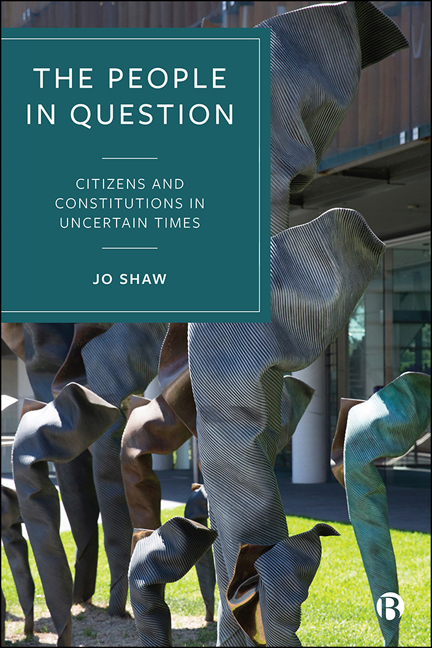Preface and Acknowledgements
Published online by Cambridge University Press: 18 March 2021
Summary
To a much greater extent than I have ever encountered before, this book has involved the reconstruction of the ship while at sea. Citizenship and constitutions seem to be under assault from all sides.
As I prepared this book during the course of 2019 and into 2020, it was hard not to be regularly distracted by new constitutional outrages that impinged on the topics I was writing about. Donald Trump was a good source. First, he suggested that the US should buy Greenland as a ‘real estate deal’, taking no account of the self-determination of Greenlanders. Then, he argued that Jewish Americans could not vote Democrat without showing disloyalty. But he has not been alone. There were the increasingly hysterical manoeuvrings on the part of a British government determined to give effect to what it continued to insist was the ‘will of the people’, namely the conclusion reached on one day in June 2016, that the vague prospectus offered by the ‘Leave the EU’ camp sounded rather enticing (‘Take back control’, etc, etc). Until the decisive General Election of December 2019, which returned the Conservative Party led by Boris Johnson to power with a substantial majority, it was never clear how the issues raised by Brexit could be put through a deadlocked Parliament. At the same time, the daily communications of government have brought doubt into the lives of those citizens most affected by the legal and human impacts of the decision to leave the EU, in particular EU27 citizens resident in the UK and UK citizens resident in the EU.
Perhaps even more significantly, we have seen almost daily developments in two citizenship-related tragedies unfolding in South and South East Asia: the dispossession and oppression of the Rohingya in Myanmar in what seems to come close to an effort at genocide, and the mass denationalization of millions in India's north east state of Assam, who have been unable to prove that they are citizens and consequently face exclusion from the state. I partly blame this continued avalanche of fresh news for the fact that the book ended up much longer than originally intended.
Although the actual writing period for the book has been relatively short, the genesis of the research lies further in the past and, as ever with me, the ideas have evolved slowly over a long time.
- Type
- Chapter
- Information
- The People in QuestionCitizens and Constitutions in Uncertain Times, pp. v - viiiPublisher: Bristol University PressPrint publication year: 2020

